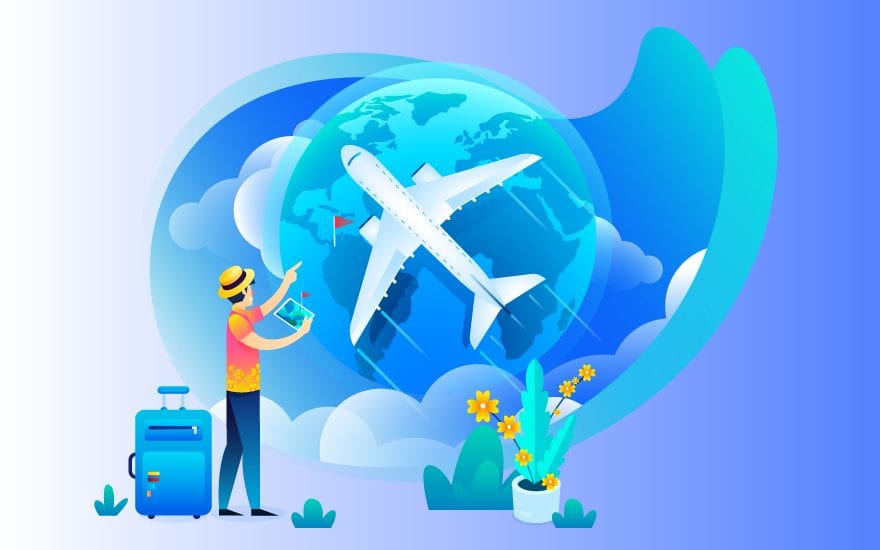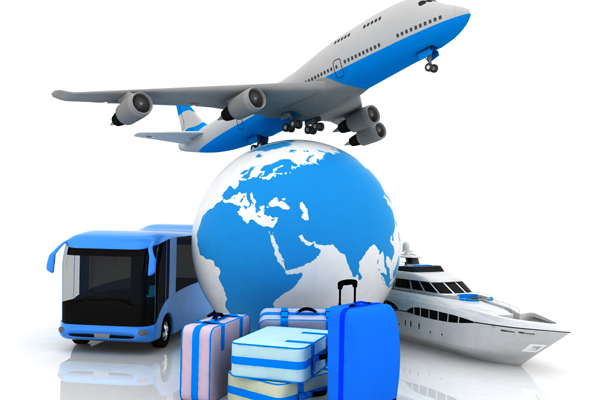Table of Content:
- The Economic Backbone:
- Cultural Exchange and Enrichment:
- Exploring Nature's Wonders:
- The Digital Age and Travel:
- Challenges in the Industry:
- Emerging Trends:
Travel and tourism are integral parts of modern life, offering people the opportunity to explore new cultures, immerse themselves in breathtaking landscapes, and create unforgettable memories. In this article, we delve into the significance of travel and tourism, their impact on economies, the joy of experiencing diverse destinations, and the evolving trends in the industry.

The Economic Backbone:
Travel and tourism contribute significantly to global economies. The industry generates jobs, stimulates local businesses, and fosters economic growth. From airlines and hotels to restaurants and transportation services, a vast network of interconnected sectors thrives on the influx of travelers. The revenue generated through tourism often supports infrastructure development, preserving historical sites, and promoting cultural heritage.
Cultural Exchange and Enrichment:
One of the most compelling aspects of travel is the opportunity to engage in cultural exchange. By visiting different countries, tourists gain insights into various ways of life, traditions, and perspectives. This exposure broadens horizons, fosters understanding, and promotes tolerance among people from diverse backgrounds. Museums, festivals, and local cuisine contribute to this rich tapestry of experiences.

Exploring Nature's Wonders:
The allure of nature's wonders draws countless travelers each year. From the majestic peaks of the Himalayas to the serene beaches of the Maldives, the world offers a myriad of landscapes to explore. Eco-tourism has gained traction, emphasizing sustainable travel that preserves the environment and benefits local communities. National parks, wildlife sanctuaries, and nature reserves allow visitors to appreciate the planet's biodiversity while advocating for its protection.
The Digital Age and Travel:
In recent years, technology has transformed the travel and tourism landscape. The advent of online booking platforms has made planning trips more accessible. Travelers can research destinations, book flights, accommodations, and activities, all at their fingertips. Social media platforms enable instant sharing of travel experiences, influencing others to embark on similar journeys. However, this digital age also raises concerns about overtourism and the need to strike a balance between exploration and preservation.

Challenges in the Industry:
The travel and tourism industry faces several challenges, including environmental impact, infrastructure development, and geopolitical factors. The carbon footprint of air travel contributes to global emissions, prompting a call for more sustainable practices. Developing countries often struggle with inadequate infrastructure to accommodate the influx of tourists, leading to issues of overcrowding and inadequate facilities.
Emerging Trends:
As the world evolves, so does the travel industry. "Staycations" have gained popularity, encouraging people to explore their local surroundings. Wellness tourism focuses on rejuvenation, promoting activities such as yoga retreats and spa getaways. Adventure tourism appeals to thrill-seekers, offering experiences like trekking, bungee jumping, and scuba diving. Culinary tourism celebrates the flavors of a region, inviting travelers to indulge in authentic cuisine.

Travel and tourism are more than leisure activities; they are gateways to personal growth, cultural understanding, and global economic development. Exploring new landscapes, engaging with diverse cultures, and embracing emerging trends create a tapestry of experiences that enrich the lives of travelers and shape the world around us. As we continue to journey through life, let us remember the transformative power of travel in shaping our perspectives and fostering a more interconnected world.


You must be logged in to post a comment.